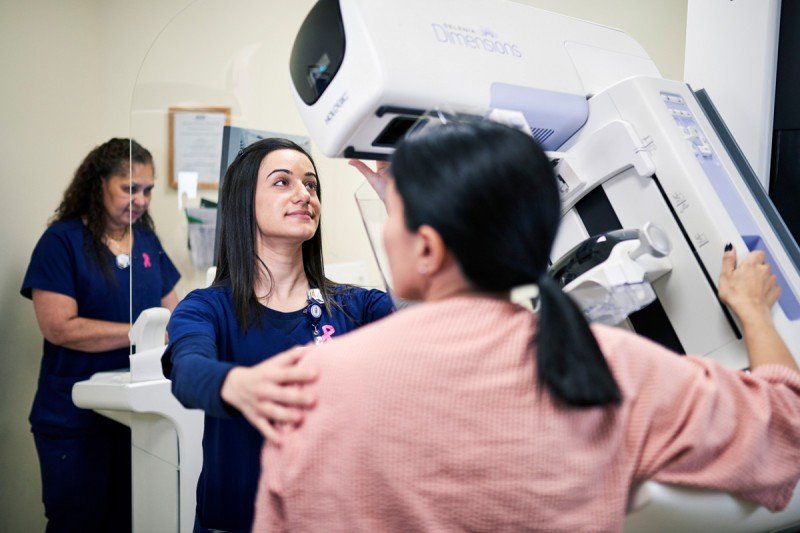
Starting at age 40, people at average risk for breast cancer should talk with their healthcare provider about the risks and benefits of getting a yearly mammogram.
What is cancer screening?
Cancer screening is checking for cancer in people who do not have symptoms. Screenings can help find cancer early, when it’s easier to treat. Treating cancer early often means there’s a better chance of curing it. Screening also can save lives by lowering the chance of dying from cancer.
What tests are used to screen for cancer?
There are several kinds of cancer screening tests and guidelines. Screening can be done with blood tests, or with radiology (imaging) tests such as computed tomography (CT) scans. Screenings can also include procedures such as a colonoscopy, or sometimes a physical exam. Cancer screenings have benefits and risks. Experts agree that for most people, screenings have more benefits than risks.
What are MSK’s cancer screening guidelines?
Our recommendations for screening depend on your age, the organs (body parts) you have, and your risk for cancer. Learn more about when you should be screened and the type of screening tests we recommend for many types of cancer, including: